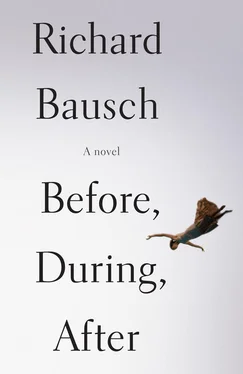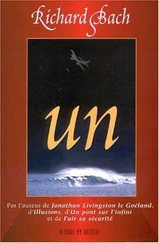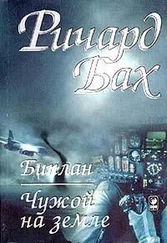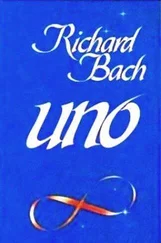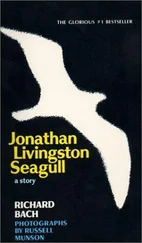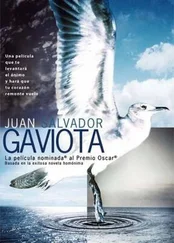“A whiskey,” she told him. “Bourbon.”
He looked at Duego.
“Another, yes,” Duego said. “Screwdriver.”
“I thought you didn’t drink,” Natasha said.
“I do not know what is in this. I knew the name of it as a drink. I do other things. But I have heard the name of this drink, and I know that it is made with orange juice. Orange juice is healthy.”
“Yes. Orange juice is healthy.”
“I drink orange juice every day.”
“So do I.”
“I do not usually like alcohol. But this tastes very amazingly good.”
“Vodka is tasteless. So it’s the orange juice. And we’ll drink to orange juice.” Looking past him into the lobby, she saw a group of people on their knees. A square-shouldered, balding man with angry red splotches from sunburn on his muscle-bound arms was leading them in prayer, thick hands folded under his chin, eyes closed.
Natasha went and stood in the entrance, watching for a few moments. The man was saying the Lord’s Prayer. She could not see Faulk doing this if he were here. It seemed vaguely showy. She saw two of the women who had taken the journey to Kingston. In the flow of her thoughts, running through the bands of terror, was the fact that Michael Faulk was thousands of miles away.
“Your whiskey,” Duego said. He had brought it over, with the little napkin at its base. “To orange juice.”
She thanked him and repeated the phrase, and he clicked his glass against hers. They drank. She walked back to the bar and sat on the stool at the end. He followed and took the first stool, right angled from her. He put both elbows on the shiny surface, setting his drink down. “I have never liked orange juice. But this.”
She didn’t respond, looking around the room for Constance or Skinner.
“I am sorry,” he said. “Forgive me. I am unable to be alone just now.”
She gazed at him. “You said you do other things. What other things?”
“I can say nothing about that.” He grinned.
There was that strange stiffness and overformality in the way he talked. “Did you come here alone?”
He nodded, his chin quivered, and she looked away.
“My wife left me,” he said. “A dancer. And she — she fell in love with another dancer. Another woman dancer. Another woman . I came here to get away from all that. My wife the lesbian. I hope you are not a lesbian.”
“I’m not a lesbian.”
“I have nothing against it in principle. I am no rightist.”
“To progress.” She drank.
“My wife is a lesbian, and she did not tell me of this until one month ago and we were married five years.”
“Maybe she didn’t know it until one month ago.”
“There are stories from her brother. It is painfully probable that she always knew. From when she was a girl in school. The brother did not tell me until it was too late.”
The thought occurred to Natasha like a small autonomic impulse running along her nerves that in a crisis of this magnitude, people felt the need to confide.
“I’m sorry,” she said to him. “You know, it’s nobody’s business.”
“I wish I could put it into perspective.” His voice broke. He took a long drink, then set his glass down. “I do not want to go home.”
“Where’s home?” she heard herself ask.
“I have lived a long time in Florida.”
“That’s right. You said that.”
“Orlando.”
“Never been there.” She felt careless, reckless, the sensation stirring like a tic in the nerves of her face. It couldn’t matter what she said.
Perhaps a minute went by.
“Yes,” he said, with an air of acknowledging something, though she had said nothing.
She went shakily out to the bank of elevators and stood in a small group of people waiting to get on. Two young girls murmured and laughed, and the sound filled her with a powerful urge to tell them to shut their mouths. She saw one of the girls make an effort at another joke, some element of what they had been laughing at, but then she sobbed, suddenly, convulsively. Natasha touched her shoulder.
The girl said, “My dad’s best friend — he’s like an uncle to me — works in the Pentagon. I wish I knew he was all right. I wish I knew everyone was all right.”
The doors of one elevator opened, and a lot of people, all older men and women, filed out, muttering low or being silent, with the dazed look that seemed to have settled into so many of the faces. Natasha waited until the elevator was empty, then stepped in, and the others who had been waiting followed. No one spoke. At her floor, two people exited with her, a man and a woman. They did not seem to be together, though they both went the opposite way from Natasha, nearly touching, the woman a step in front of the man. They were in their sixties or seventies, and she heard the man mutter something in Spanish. The woman laughed. Natasha made her way down the hall to her room. Inside, she went to the window and looked out at the beach. People down there stood at the water’s edge, and some had gone into the water and were floundering in the wake of the slow waves. Nobody seemed to be swimming. She could not see Constance. The sun was sinking toward the mountains, behind towering dark-edged clouds. The wind had picked up, moving the palm fronds and riffling the cloth of the big umbrellas jutting from the picnic tables. She stepped to the bed and lay down, trying not to cry anymore and feeling what she’d had to drink. The gray light was warm. She heard the sea, voices rising, and wondered if she was imagining the distress embedded in each utterance, a panicky note in the cries, even those of apparent pleasure in the chill of the water, and the few bursts of laughter. She closed her eyes, intending, if she could, to sleep through until morning. But sleep wouldn’t come.
She rose finally, steadied herself, then moved back to the window. Time wouldn’t budge. There was the whole dreadful night to go through. Picking up the room phone, she called the front desk and asked for an outside line. The line was busy. “Will you ring my room when there’s a line open?” Nothing. The desk clerk had simply punched the numbers for the outside line and gone on to something else or someone else. She waited a moment, still shivering, and when she repunched the number, this time she got the line. All cell-phone signals were still busy out of Jamaica or into New York; there was no telling which. She tried Iris at home.
And got her.
“Oh, I’m so relieved to talk to you, you poor thing,” Iris said. “How will you get home? Are you all right?”
“Have you heard from Michael?”
“No.”
“He’s there , Iris, in the financial district — where the towers were. He’s — I don’t know if he’s—”
“He’s probably all right,” Iris said in a shaking voice. “A lot of people were there. You saw it. He wasn’t in one of the buildings, was he?”
“He talked about looking at the city from the top. Oh, God. I’m scared. Constance said they don’t open that early, but I can’t stop worrying and I know it’s selfish.”
“Honey,” Iris said. “There’s nothing selfish about worrying over someone you love.”
“Will you call Aunt Clara for me? Can you do that?”
“Of course. And I’m sure he’s fine.”
As Natasha started to say the number, Iris interrupted her. “I already have the number, honey.”
“Ask if she’s heard from Michael.”
“I’m sure he’s all right. We’d have heard by now—”
“No, that’s the thing,” Natasha told her. “We don’t know that. All the cell phones are down or too clogged to handle the calls. I can’t get through to him.” She sobbed. “Nobody can find out anything here. I feel so trapped.”
Читать дальше
